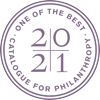Smith Center for Healing and the Arts holds our donors in the highest regard. The generosity of our donors makes our work possible.
Smith Center has the highest level of respect for the privacy of its donors. The following is our donor privacy policy, which guides our staff and volunteers on how they may and may not use your personal information while honoring your rights as a contributor.
Smith Center collects and uses personal information from donors that includes: name, address, telephone number, e-mail address and donor comments when a donor voluntarily provides it to us. In addition, Smith Center keeps a record of each donor’s giving history. This information is kept on file for IRS purposes and is also used in our development process to analyze overall giving patterns in order to make accurate budget projections.
Smith Center does not sell, trade, rent or share names, addresses, telephone numbers, or e-mail addresses of our donors.
We will use contact information (e-mail, telephone number and address) of donors for these purposes only:
- Distribute receipts for donations
- Thank donors for their donation
- Inform donors about news, upcoming fundraising events and other activities of Smith Center
- Internal analysis and record keeping
- Reporting to applicable government agencies as required by law
- Other purposes related to the fundraising operations.
As a rule, Smith Center publicly recognizes a donor by publishing a donor’s name unless the donor explicitly chooses the “anonymous” field when making a donation by mail or online. Anonymized donor information may be used for promotional and fundraising activities. Comments that are provided by donors may be publicly published and may be used in promotional materials.
If you have questions about this Donor Privacy Policy or if you wish to be removed from our email/postal contact lists, then please e-mail development@smithcenter.org or write to:
Shanti Norris
Executive Director
We support the Donor Bill of Rights.
Philanthropy is based on voluntary action for the common good. It is a tradition of giving and sharing that is primary to the quality of life. To assure that philanthropy merits the respect and trust of the general public, and that donors and prospective donors can have full confidence in the not-for-profit organizations and causes they are asked to support, we declare that all donors have these rights:
- To be informed of the organization’s mission, of the way the organization intends to use donated resources, and of its capacity to use donations effectively for their intended purposes.
- To be informed of the identity of those serving on the organization’s governing board, and to expect the board to exercise prudent judgment in its stewardship responsibilities.
- To have access to the organization’s most recent financial statements.
- To be assured their gifts will be used for the purposes for which they were given.
- To receive appropriate acknowledgment and recognition.
- To be assured that information about their donations is handled with respect and with confidentiality to the extent provided by law.
- To expect that all relationships with individuals representing organizations of interest to the donor will be professional in nature.
- To be informed whether those seeking donations are volunteers, employees of the organization or hired solicitors.
- To have the opportunity for their names to be deleted from mailing lists that an organization may intend to share.
- To feel free to ask questions when making a donation and to receive prompt, truthful and forthright answers.
The text of this statement in its entirety was developed by the Association of Fundraising Professionals (AFP), Association for Healthcare Philanthropy (AHP), Council for Advancement and Support of Education (CASE), and the Giving Institute: Leading Consultants to Non-Profits.

